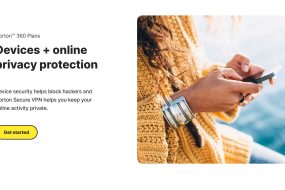

Webcams can be expensive and hard to find right now. On top of that, their video quality is probably worse than your iPhone’s camera. So, why not use your iPhone as a webcam for your video meetings instead? Here’s how to do it.
First, Consider Using iPhone Apps Instead
Using your iPhone as a webcam requires that you install an app on your iPhone (which must be running for it to function), and a companion app on your Windows PC or Mac. The setup is fairly simple, but there’s an even simpler alternative: native apps.
If you want a webcam to make Skype calls, chat with colleagues on Zoom or Slack, or simply catch up with friends via WhatsApp, consider just downloading the relevant iPhone app instead. These apps are purpose-built for a mobile experience, so they work great on the small screen.
If you want a hands-free experience when using your iPhone like this, invest in a cheap tripod. You can buy tripod mounts for smartphones to adapt any existing photo equipment you have. Or, you can go all-out on a GorillaPod you can attach to virtually any surface.

The main drawback of going this route is you’ll be reliant on your iPhone’s microphone and speaker. Wireless earphones, like AirPods, are the best way around this. The sound quality is passable, and you’ll be a lot easier to understand with a microphone so close to your face.
Of course, sometimes, you have to sit down at a computer. For that, nothing quite replaces a dedicated webcam. Fortunately, you can create that with your iPhone, too.
How to Use Your iPhone as a Webcam
Using your iPhone as a webcam requires that you install an app on your phone and some software on your computer. Unfortunately, your iPhone doesn’t support this functionality out of the box, so third-party software is required to get it working.
After trying several apps and reading plenty of reviews, there are two we recommend: EpocCam (Windows and Mac), and iVCam (Windows only). These are both premium products with generous free options, so you can try before you buy. The Windows versions support Windows 10, Windows 8, and Windows 7.
EpocCam for Mac and PC has three iPhone apps available. The free version has limitations, the high-definition version is $7.99, and the $19.99 version is intended for professionals who want to use multiple cameras. The free version is limited to 640 x 480 resolution and includes a watermark over the camera image.
iVCam works in a virtually identical way, but it’s only available for Windows. The iPhone app and companion software can be downloaded for free. The free version of iVCam supports HD resolutions, but also includes a watermark over the video feed you can pay to remove. You can either buy iVCam for $9.99 from the developer’s website or via a $9.99 in-app purchase.
Both of these allow you to use a wireless or USB connection. You can choose a front- or rear-facing cameras, use different lenses, and even enable the flash on your device to better light the scene. If you decide you like either app and want to unlock the full version, they’re both an excellent value (under $10) when compared with a webcam.
There’s also an app called iCam ($4.99). Unfortunately, you can’t try it before you buy it. It also relies on UPnP for a wireless connection, which might not play nicely with all routers. Another solution is NDI|HX Camera, a free app for video producers. However, it’s a little more complicated than most people would like.
Whichever application you choose, you’ll have to leave it open and running on your iPhone’s screen while using it as a webcam. After installing your application and setting up your iPhone, you’ll need to go into your video-conferencing application’s settings. Here, select the virtual webcam as the webcam input device.
Tips for Using an iPhone as a Webcam
A wired connection will always fare better than wireless. If you want the most reliable webcam solution, ditch wireless, and opt for a USB connection. Both of our chosen apps support a rock-solid USB connection. Unless you’re walking around the house while chatting, Wi-Fi makes little sense here.
If you want to use your iPhone as a webcam, you’ll also need a way to keep it still. The best solution is a smartphone tripod, or tripod mount if you already have a tripod to use.
GorillaPods are perfect for this because you can mount them virtually anywhere. The Joby GripTight ONE is a solid little tripod mount for smartphones that attaches and detaches almost instantly. The GripTight PRO 2 (shown below) comes with an appropriately sized GorillaPod in the box. If you’re in a pinch, you can also make your own smartphone tripod mount using binder clips.

Both apps allow you to use the rear-facing camera, which is something you definitely should do. Not only can you use the flash if required, but the rear-facing cameras on an iPhone are vastly superior to the selfie cam. If your iPhone has multiple lenses, you can choose between those, as well. However, we recommend sticking to the regular wide (not ultrawide or telephoto) lens for a more flattering focal length.
You can use both EpocCam and iVCam to capture audio, but you probably shouldn’t. Headphones are fine, but a proper desk microphone will sound 10 times better. You might also want to adjust your desk lamp before you jump on a call to make sure you don’t look like a zombie.
Using your iPhone as a webcam will drain its battery. If you aren’t using a USB connection (which charges your phone as you chat), then make sure you plug it into an outlet. If your iPhone battery dies while you’re on a call, so will your video.









